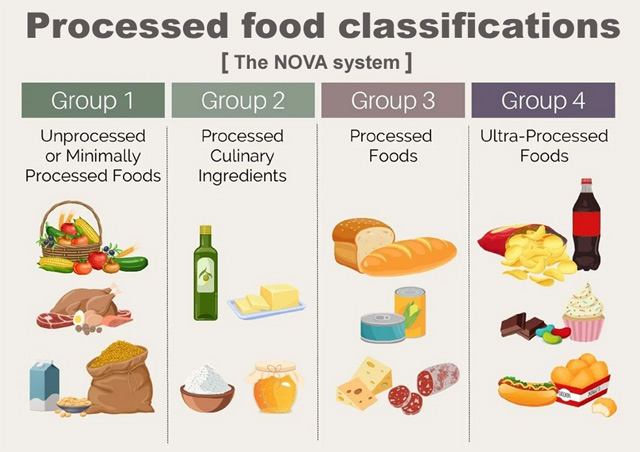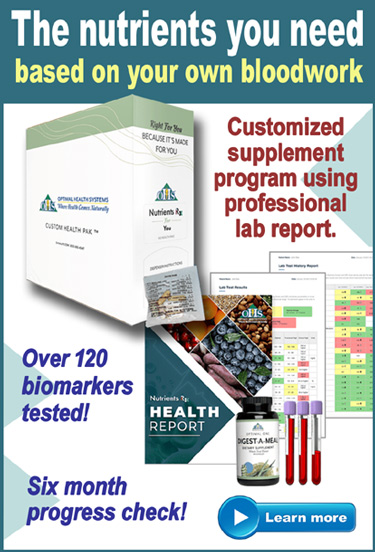Processed food consumption has mushroomed in recent decades and, according to numerous studies, the price being paid by consumers is a reciprocating increase in disease, obesity and early death.
A 2021 study published in the American Journal of Clinical Nutrition found that consumption of ultra-processed foods had increased from 53.5% of calories consumed to 57% of calories consumed during the preceding 17 years.
The findings are remarkable because the 57% number, though high, only reflects ULTRA-processed foods, not all levels of processed foods.
When all levels of processed foods are considered, the consumption is well over 70%; however, ultra-processed foods are the most heavily consumed (and most unhealthy) category.
The processed food classifications originate from the NOVA system where foods are divided into four levels of processing. The ultra-processed category is the most heavily processed level, and includes what is commonly thought of as “junk food”. It is by far the most unhealthy category.
It is worth noting that further studies examining only children found consumption of ultra-processed food was even higher for youth—about 66% of consumed calories.
New study
And what is the cost to health and happiness for those consuming a diet high in ultra-processed foods?
A new 2024 study, conducted in Australia, found ultra-processed foods were linked to heart disease, diabetes, mental disorders and early death.
The study certainly isn’t the first to paint a dismal picture (and warning) to those consuming high amounts of processed foods. As far back as 1998—11 years before the NOVA system was created—a study published in the Journal of the American Heart Association documented that a diet high in processed foods speeds up clogging of the arteries and leads to an increase in heart attacks.
In the new study, a systematic umbrella review of existing studies, researchers examined 45 meta-analyses encompassing almost 10 million people.
Study findings
In their findings researchers reported consistent evidence linking higher intakes of ultra-processed foods with over 70% of the 45 different health outcomes they assessed.
A “higher intake” was considered about one serving or about 10% more ultra-processed foods per day.
“Strong evidence shows that a higher intake of ultra-processed foods was associated with approximately 50% higher risk of cardiovascular disease-related death and common mental disorders,” said lead author Dr. Melissa Lane, a postdoctoral research fellow at Deakin University, where the review was conducted.
“Cardiovascular disease” is a broad definition that encompasses heart attacks, stroke, clogged arteries and peripheral artery disease.
With regards to other health conditions, the researchers reported ultra-processed foods raised the risk of obesity by 55%; sleep disorders by 41%; development of type 2 diabetes by 40%; and depression by 20%.
The study was published in the British Medical Journal in February 2024.
Processed food danger: A brief synopsis
The danger of ultra-processed foods is two-fold: Detraction of nutrients and addition of harmful non-nutrients.
Most of the micronutrients present in original farmed foods—vitamins, minerals, antioxidants and essential fatty acids—are destroyed in the manufacturing process.
At the same time sugar, salt, preservatives, coloring, and taste and texture enhancers are all added during processing. In addition, processing typically removes most of the beneficial fiber that is present in whole foods.
All this manipulation renders a food that stimulates the taste buds and his highly addictive, but is high in calories and conveys little in the way of nutrition. This is why foods of this nature are often referred to as “empty calories”.
– – –
Source: British Medical Journal.


